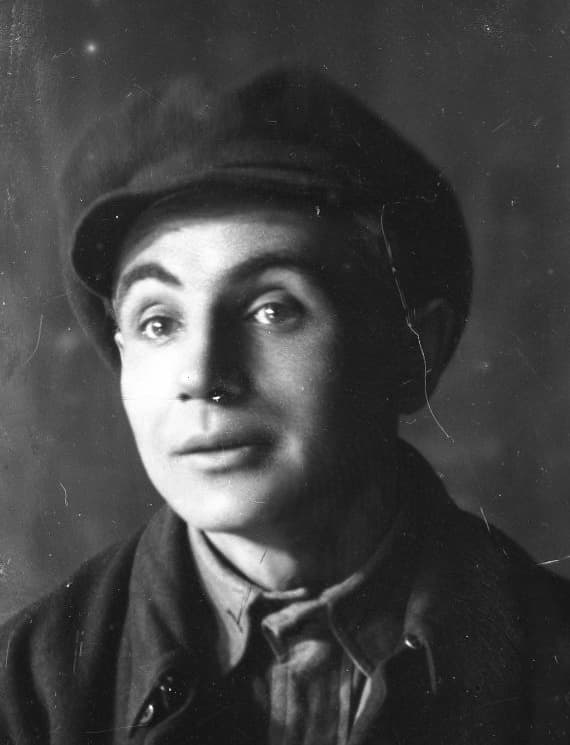(1896–1983)
Zinaida Pihulovych was a Ukrainian theater and film actress, member of the Berezil Artistic Association, student of Les Kurbas. She was the first professional female theater director in Ukraine.
After graduating from the Kyiv Gymnasium (1918) she studied medicine for a year at the St. Volodymyr University of Kyiv before switching to acting at the Mykola Lysenko Music and Drama Institute. By the time she graduated in 1924 she was already a member of the Berezil Artistic Association: in 1922 she was one of 20 third-year students selected by Les Kurbas and his partners to create the new theater. She participated in the March 31, 1922 meeting where the creation of Berezil was announced.
Zinaida Pihulovych starred in Kurbas’s productions of October (1922), Ruhr and Gas (1923). She demonstrated her skills as an actress, acrobat and singer as Oryshka, a red-haired clown, (1924-1925) in Volodymyr Yaroshenko’s adaptation of Marko Kropyvnytskyi’s play They Made Fools of Themselves that was directed by Favst Lopatynskyi. In 1928-1929 she was invited by Kurbas to play Litti-Furia in Berezil’s operetta The Mikado and the queen in Queen of the Unknown Island.
At the same time Zinaida Pihulovych is honing her directing skills: she joins the second intake of the Director’s Laboratory, where she does hands on work, studies theory, and together with Lazar Frenkel heads up the Repertoire Station.
Organizational work becomes an important part of her involvement in the Berezil Artistic Association. Pihulovych takes over the amateur theater activities, organizes theater groups and writes plays for them (Operational Plan and The Truth are published). She takes an interest in children’s theater and later puppet theater. As her husband Favst Lopatynskyi’s deputy, she takes part in the management of the 2nd Workshop, which was to become the first Kyiv Young Spectator’s Theater.
In 1926 she starts working in cinema, appearing in three of her husband’s films (she turned down offers from other directors at his behest). In Blue Package (1926) Zinaida plays the daughter of a rich villager who falls in love with a Red partisan and saves him by helping him deliver secret documents to the Bolshevik headquarters. In Vasylyna, based on Ivan Nechui-Levytskyi’s play The Wandering Girl (1927), she creates the intimate image of a village girl whose life takes a turn when she is seduced by the lord, she becomes a factory worker and reinvents herself in a new environment. In Karmeliuk (1931) the actress plays Karmeliuk’s wife, Kylyna, a member of the Ukrainian peasant insurgency.
In 1930 Pihulovych leaves Berezil. In the early 1930s she goes to Moscow and studies directing for three years at the Russian Institute of Theater Arts (GITIS). Upon returning to Ukraine she dedicates herself to puppet theater. She organizes the puppet theater at the Kyiv Theater of Small Forms, where she works from 1931-1934 (the theater would later give rise to the Zhytomyr Puppet Theater). In 1936 she organizes two teams that would form the core of theaters in Cherkasy and Uman, and helps to organize theaters in Poltava and Chernihiv.
After WWII Zinaida Pihulovych works as a director at the Mykolaiv Philharmonic, before leaving to organize a folk theater in Voznesensk, Mykolaiv oblast (productions included Ivan Karpenko-Karyi’s One Hundred Thousand). In the late 1960s she leaves the theaters to write her memoirs.


